We use cookies to make your experience better. To comply with the new e-Privacy directive, we need to ask for your consent to set the cookies. Learn more.
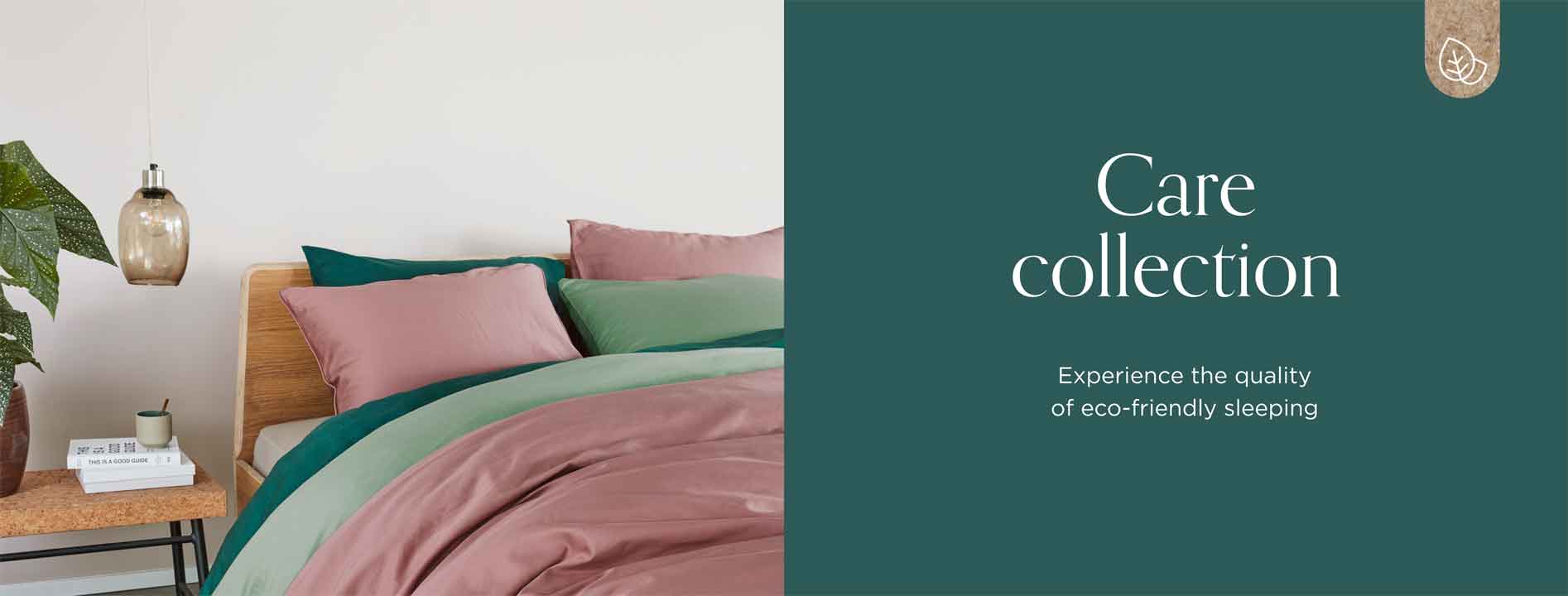
We want to minimise the impact of our products on the environment and therefore strive to use sustainable materials. Our main source of raw material is cotton. The cultivation and processing of cotton has a major impact on the environment, which is why our focus is on finding sustainable alternatives.
The bed linen from the Beddinghouse care collection is made from materials that disperse moisture well, have antibacterial properties and are generally easier to recycle. The amount of water used in the production of these materials is considerably less than that used in the production of more traditional materials, also fewer chemicals such as pesticides and bleach and cheap and dangerous additives such as microplastics are used.
Sustainable Packaging
In order to further increase sustainability, PVC is no longer used in the Beddinghouse care collection packaging. The packaging is made out of cardboard that has the FSC label, this means that the raw material for the cardboard comes from responsibly managed forests.
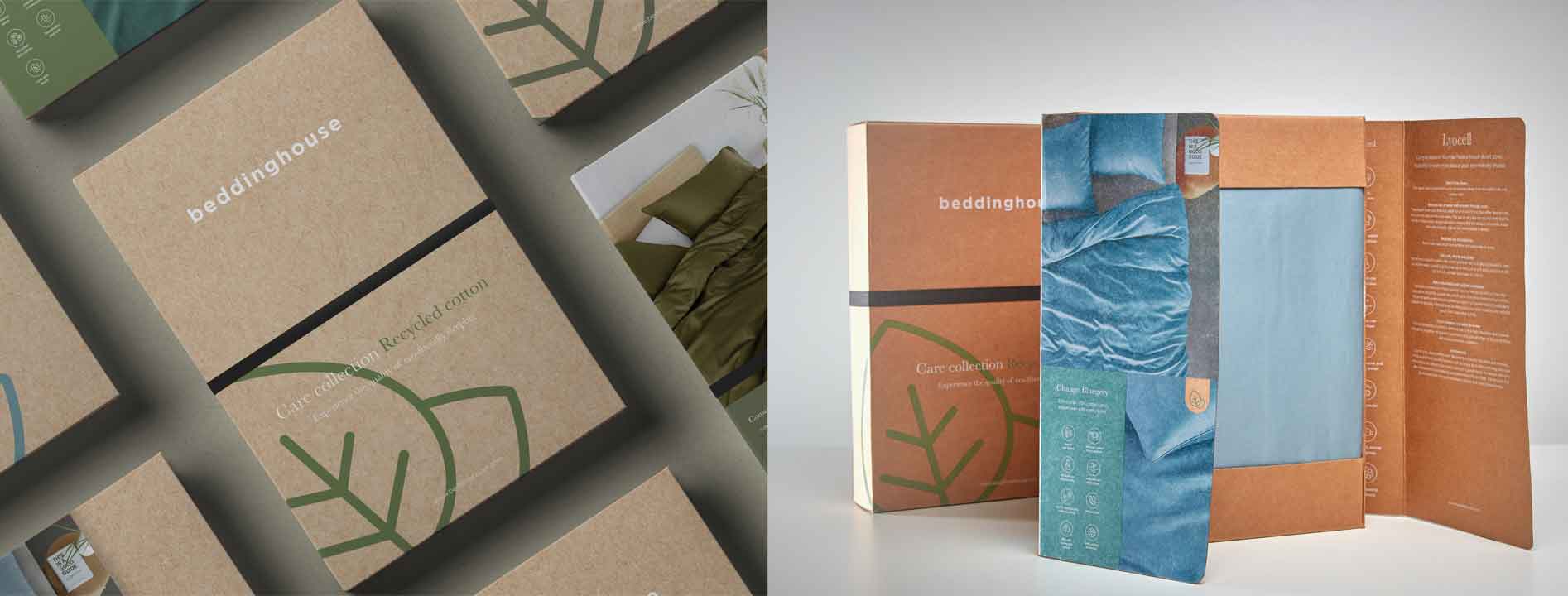
Collectionbook
Care qualities
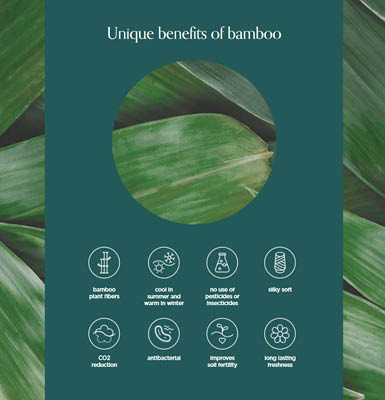
Bamboo
Bamboo fabric is made from fibers extracted from the bamboo plant, which has a natural and rapid growth. Bamboo is known to improve soil fertility , reduce soil erosion and absorb CO2. Bamboo is inherently antibacterial and therefore does not require the use of pesticides during cultivation. This duvet cover is made of 50% bamboo and 50% cotton satin. The bamboo/satin mix creates a silky soft and supple fabric. Bamboo fabric contains by nature an antibacterial bio agent and absorbs up to 70% more moisture than cotton which means that it will stay fresher for longer. This bamboo duvet cover is suitable for all seasons: the fabric is very breathable which makes it feel cool in summer and its insulating qualities provide comfortable warmth in winter.
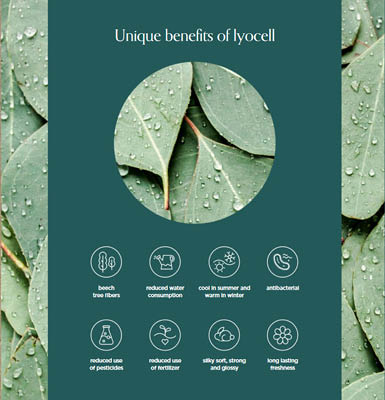
Lyocell
Lyocell is made from the cellulose fibres from beech trees, that can be grown on soil that is not suitable for agriculture. Because beech trees can be grown using waste water and fewer harmful solvents, the cultivation process is much more environmentally friendly than for example, cotton cultivation. The beech tree needs less water, pesticides and fertilizer to grow and is therefore a more sustainable option. In addition to this, lyocell has antibacterial qualities, an excellent moisture absorbing capacity and offers optimal ventilation. The fabric provides very good temperature regulation, making this duvet cover cool in summer and warm in winter. Due to the mix of lyocell and cotton satin, this duvet cover is silky soft, durable, glossy and pleasantly comfortable to sleep under.
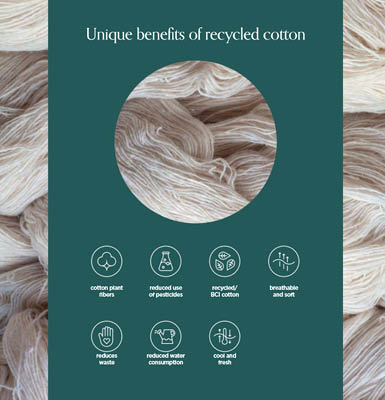
Recycled cotton
This duvet cover is made from a mix of recycled and BCI certified cotton. Recycled cotton requires less raw materials, much less water, fertilizer and pesticides to produce. Using recycled cotton also helps to reduce waste. BCI (Better Cotton Initiative) sets requirements that the cotton process must meet in order to ensure a more sustainable end product. All in all, this makes recycled cotton/BCI cotton a more sustainable choice than conventional cotton. Cotton is breathable, absorbent and easy to maintain. Cotton is the most commonly used material for duvet covers and is suitable for all seasons. The pillowcases are edged with a jeans stitch for a vintage look.
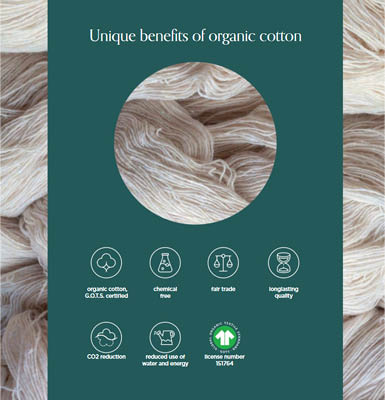
Organic cotton
Organic cotton is grown in almost the same way as normal cotton; the main difference is that organic cotton is not exposed to harmful and synthetic pesticides, genetic modification or fertilizers. In addition to this, our organic cotton is GOTS certified. G.O.T.S. (Global Organic Textile Standard) is an international organic textile label that sets quality requirements for the production of fibres and their further processing and guarantees that the production takes place in a socially responsible and environmentally friendly manner. Organic cotton is breathable, moisture- absorbing, softer and thicker than conventional cotton and is also more resistant to wear and tear.



